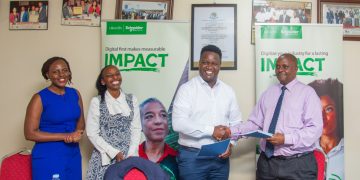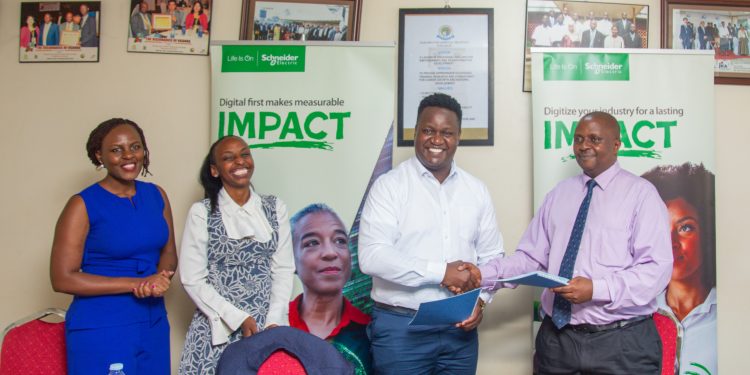The East African Crude Oil Pipeline (EACOP), in partnership with its Electrical, Instrumentation, Telecommunication, and Security Systems contractor, Schneider Electric Uganda, has signed a Memorandum of Understanding (MoU) with Nakawa Vocational Training College (NVTC) to equip students and lecturers with practical skills in electrical and telecommunication engineering.
The partnership aims to bridge the gap between academic learning and industry needs by providing hands-on training in areas such as electrical systems, industrial automation, and project management, key skills required in Uganda’s fast-growing oil and gas sector.
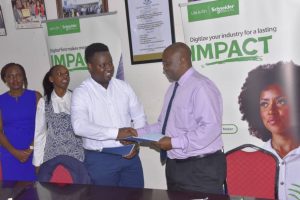
The signing ceremony took place at Nakawa Vocational Training College, where EACOP reaffirmed its commitment to developing a skilled local workforce capable of supporting large-scale infrastructure projects, such as the construction of the oil pipeline.
Natasha Kassami, EACOP’s National Content Capacity Building Lead, noted that the partnership is intended to enable the institute to pass on industry-relevant skills to students to benefit from opportunities in the oil and gas sector.
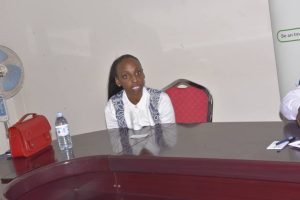
“This partnership will yield a lot of work for many graduate trainees on the EACOP project. We have just recently offered graduate training to over 100 graduates, which may turn into job opportunities,” Natasha said. She added that this collaboration presents an opportunity for students to turn theory into practice through internship placements, helping them to easily transition into the professional field.
Patrick Asiimwe, the Dean of Training at the college, welcomed the partnership as key in addressing unemployment, as students will have an opportunity to practice the skills taught to them, and those who perform well stand a chance of being recruited by their respective places of training.
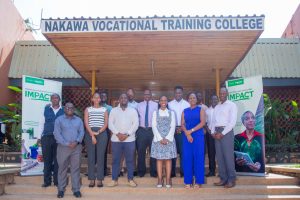
“Our students will now have opportunities to apply the skills they learn in class. Those who excel stand a good chance of being absorbed into the industry,” Asiimwe noted.
Joshua Habwe, General Manager of Schneider Electric Uganda, said the collaboration will not only benefit students but also empower trainers and strengthen institutional capacity.
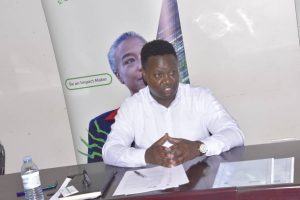
“We are investing in local skills development by training young Ugandans and lecturers, and by providing modern training equipment to support the learning process,” Habwe said. Nakawa Institute is our starting point, and we plan to extend similar partnerships to other institutions across the country,” he added.
The partnership is part of EACOP’s ongoing commitment to build capacity through training, to ensure that Ugandans benefit directly from the opportunities created by the country’s oil and gas sector.
